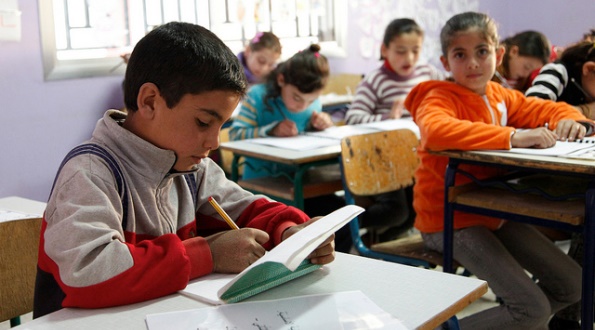BECOME A MEMBER
>JOIN
UK International Development Committee Calls on UK Government to Prioritise Humanitarian Spending in the Middle East

Launching a report examining UK support for humanitarian relief in the Middle East, the UK House of Commons’ International Development Committee calls upon the UK Government to press France, Spain, Italy and other European countries to increase their contributions to the humanitarian relief for the Syrian refugee crisis and those nations affected by.
According to the report, the UK has committed £600 million in humanitarian assistance since the crisis in Syria began, making it the second-largest bilateral donor to the relief effort. The UK's annual spending on its response to the crisis has increased steadily and now stands at approximately £300m per year. This increase has been made possible by the fact that the UK's total Official Development Assistance (ODA) budget has itself been increasing, reaching 0.7% of GNI in 2013. Now that the 0.7% target has been reached, spending will not continue to increase at the same rate. The International Development Committee is conscious that if the Department for International Development (DFID) continues to prioritize humanitarian spending in the Middle East, this will have implications for DFID's spending in other parts of the world.
The International Development Committee received strong representations that stressed the case for supporting Syrian refugees in the region, allowing them to remain close to their livelihoods with a possibility of returning to Syria.
The UK's response to the Syria crisis covers not only Syria itself, but also neighboring countries such as Lebanon and Jordan to which many Syrians have fled. In these countries, most Syrian refugees are residing in towns and villages rather than in formal refugee camps, yet there is a tendency for donors to focus disproportionately on the camps. The International Development Committee calls upon DFID to avoid falling into this trap and recommends that DFID use national plans as the basis for its assistance to Lebanon and Jordan, and that it prioritize education for Syrian refugee children.
To download the full report, please click here.
Photo courtesy of DFID - UK Department for International Development.

